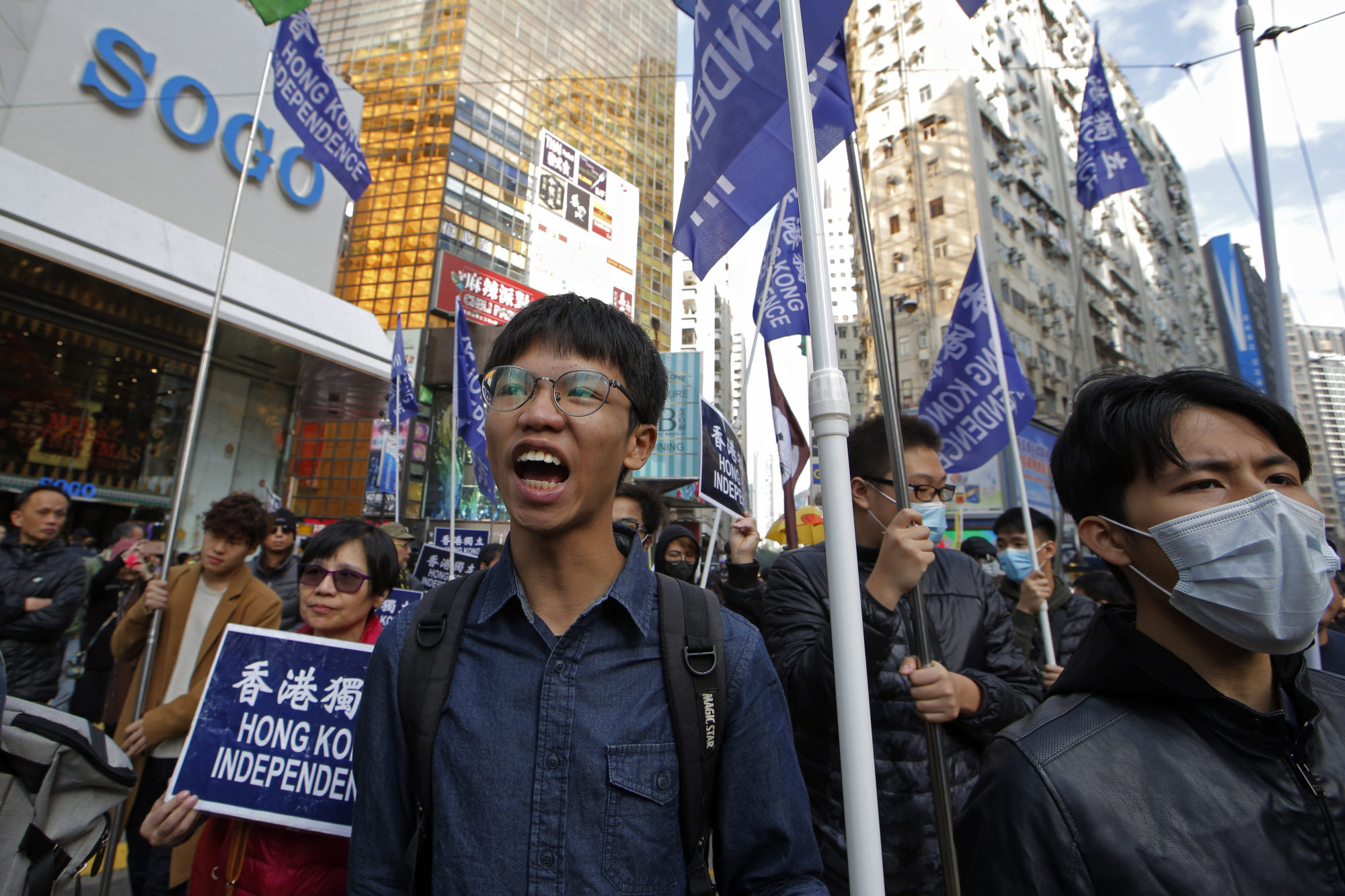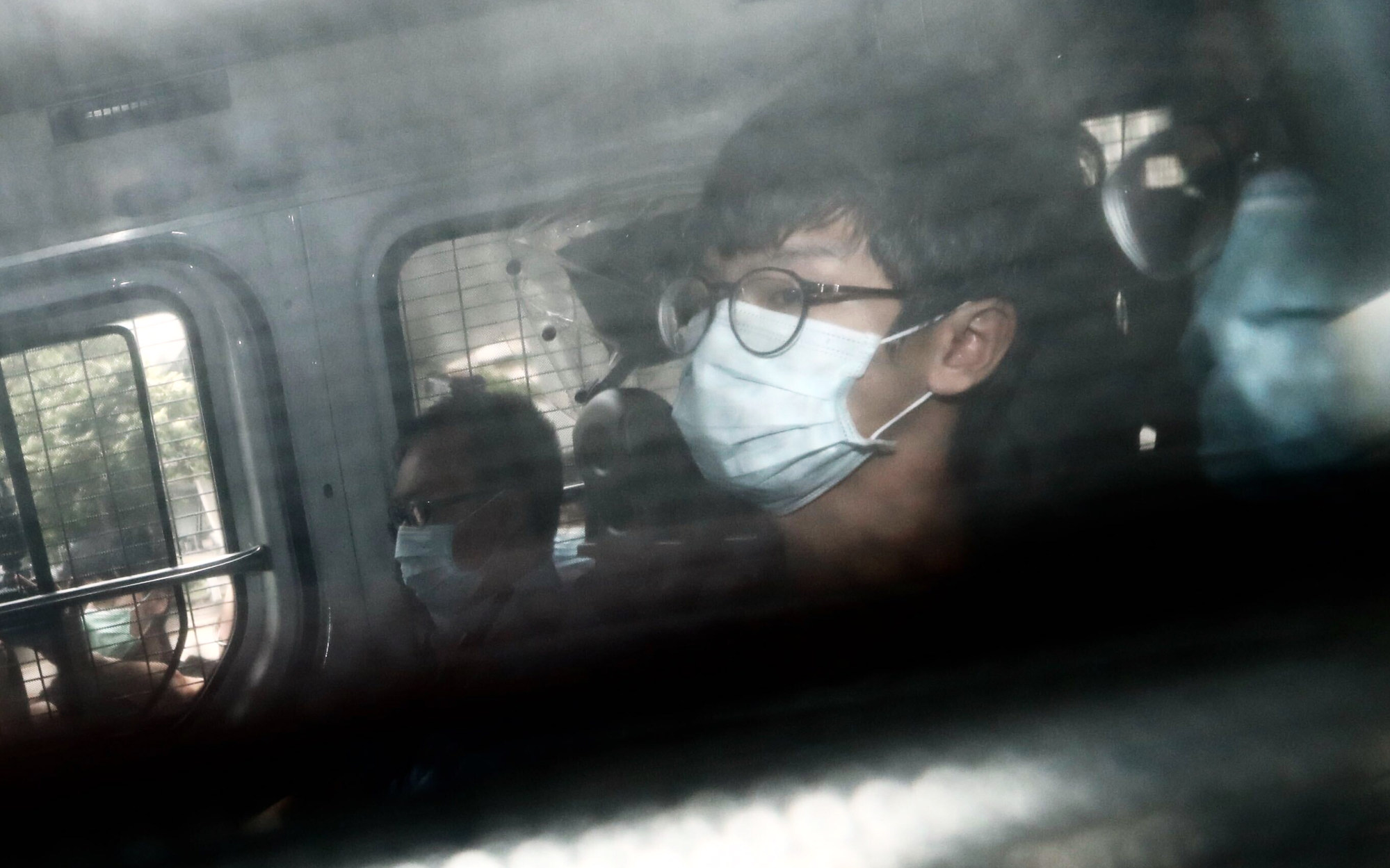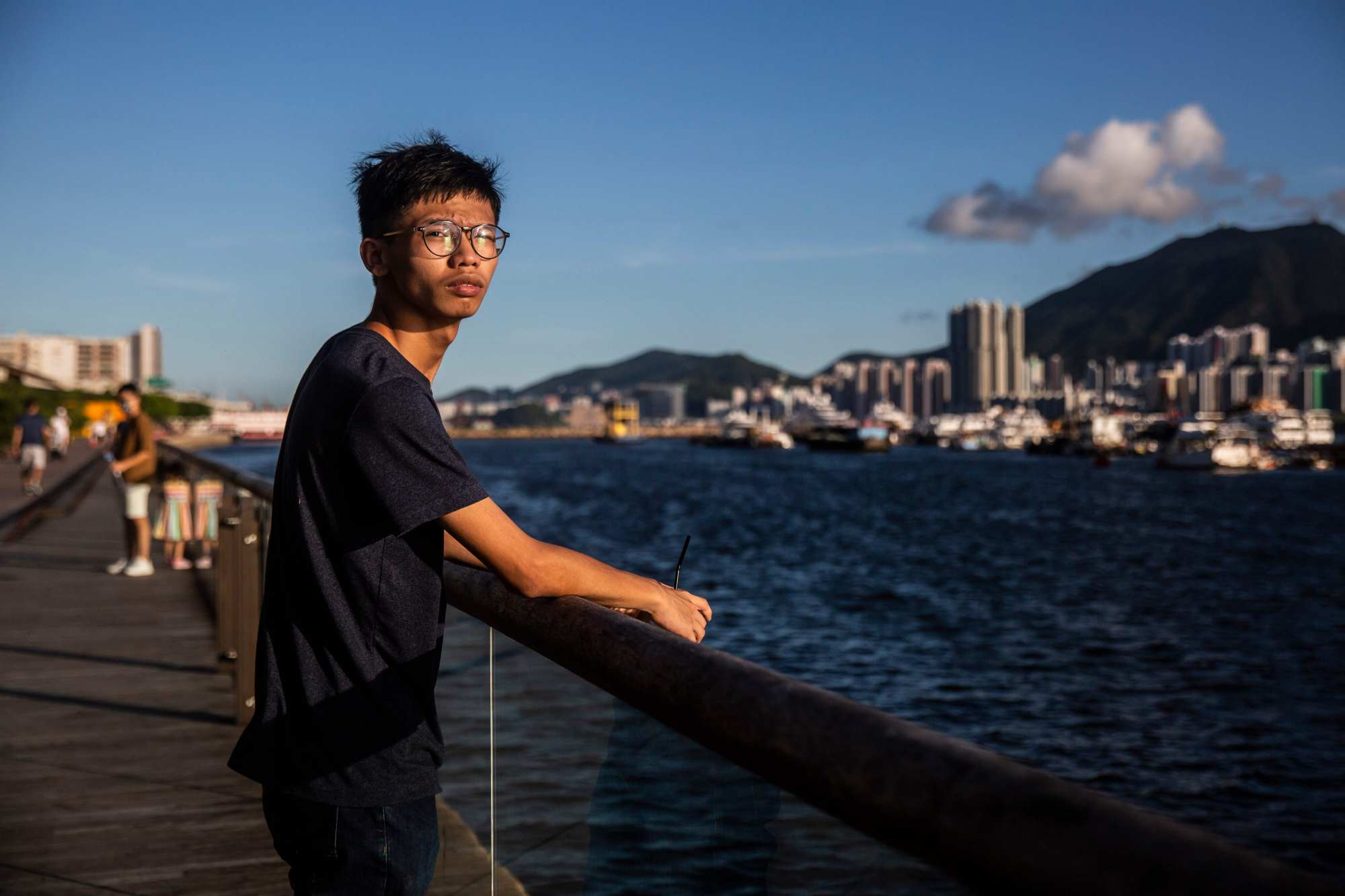
Hong Kong activist Tony Chung seeks political asylum in UK, says frequent meetings with police since prison release ‘filled me with dread’
- Chung, 22, claims police requested meetings with him ‘every two to four weeks’, asked him to become ‘paid informant’ to prove his ‘willingness to cooperate’
- Deputy commissioner of correctional services says ban on Chung speaking publicly aimed to prevent him from reoffending
A Hong Kong activist of a now-disbanded pro-independence group has said he has sought political asylum in Britain, claiming police requested frequent meetings with him following his release from prison six months ago and asked him to become a “paid informant”.
Tony Chung Hon-lam, 22, former convenor of Studentlocalism, said in a social media post on Friday that he was troubled by correctional officers’ decision to prevent him from speaking publicly and taking up certain jobs. He said he feared authorities would arrest him again after a home-grown security law was enacted next year.
Chung was released from prison in June after serving 43 months behind bars for a secession offence under the national security law. He is currently under one-year post-release supervision by the Correctional Services Department.
The department on Friday afternoon said it had issued a recall order requiring Chung to return to the city and asked law enforcement authorities to put him on the wanted list.

Police also condemned Chung’s behaviour and said their National Security Department had been collecting relevant intelligence through different means and individuals.
Earlier this month, activist Agnes Chow Ting, who co-founded the Demosisto party, said she had left the city for Canada to study and decided not to return, despite being required to report to police regularly as part of her bail conditions under a national security investigation.
Chung, who kept a low profile after his release, revealed in his post that he had arrived in the UK via Japan on Wednesday evening and would continue his studies there.
He said he still “lived in daily fear”, noting national security police’s requests to meet with him “every two to four weeks” had filled him with dread.
Student activist who pushed for Hong Kong independence jailed for 43 months
He added he was asked to board a seven-seater vehicle with closed curtains and was transported to unknown destinations in each meeting.
“During these meetings, I was interrogated about my activities in the preceding weeks, asked about individuals I had met, required to provide full Chinese names even for primary school classmates, and detailed information about visits to restaurants or bars, along with the content of conversations,” he said.
Chung said national security police proposed to offer fees in exchange for information on others to prove his “willingness to cooperate”.

According to Chung, two national security police officers also suggested a trip to mainland China in a separate meeting in September. He added he hesitated due to fears of extradition.
The activist said officers asked if he was still engaging in activities harmful to national security when he told them he did not want to make such a trip.
Hong Kong police hit out as activist Agnes Chow fails to report under bail terms
Chung also said officers demanded he sign a document related to Article 63 of the national security law, which dealt with confidentiality of staff involved in handling linked cases. That prohibited him from disclosing any content of communication between them to anyone, he added.
“I am neither able to seek legal assistance nor disclose my predicament to anyone. Under such immense pressure and fear, I can only silently endure,” he said.
He also accused correctional officers of telling him not to speak publicly through a revised supervision order, as well as preventing him from taking up a temporary summer job.
Chung noted he had been ill since October and that doctors said his weakened immune system was a result of significant mental stress and psychological factors.

Under the post-release supervision of the Prisoners Ordinance, discharged young offenders are subject to a statutory period of observation of one year.
The activist said he had feared that authorities would “impose additional charges” on him after the enactment of a local version of the national security law, under Article 23 of the Basic Law, the city’s mini-constitution.
Agnes Chow ‘not the only national security law suspect allowed to leave city’
He then persuaded the Correctional Services Department to allow him to fly to Okinawa in Japan “on the grounds of emotional adjustment”. In Japan, he sought advice from individuals and groups he knew from Britain, the United States and Canada and bought a flight ticket to the UK.
After Chung’s claims, Kenneth Leung Kin-ip, deputy commissioner of correctional services, clarified that the supervision order, applied to prisoners released from jail before the age of 25, did not restrict Chung’s movements.
Leung said the activist told authorities that he would be away from December 20 to 25 but he did not catch his return flight and claimed he would get back on December 28.
“[Chung] was also disseminating remarks that threatened national security,” he told a press briefing. “We strongly condemn him for lying about his reasons for leaving Hong Kong. This damaged trust between him and his supervisors.”
He also urged Chung to return to Hong Kong and denied that the authorities’ ban on him speaking publicly undermined the activist’s freedom of speech. Leung stressed that the restrictions, including that on job selection, aimed to prevent him from reoffending.
In a reply to the Post, police said the National Security Department was entitled to collect and analyse information related to national security.
“The department has been effectively collecting intelligence related to acts and activities that endanger national security through various channels, means and individuals,” the force said.
It condemned Chung as “shamefully begged for assistance from foreign anti-China forces under the guise of being a victim”.
Chung was previously given a four-month jail sentence for insulting the Chinese national flag. He was later arrested under the national security law in late July 2020, around a month after Beijing imposed the legislation on Hong Kong.
He pleaded guilty in November 2021 to inciting secession and money laundering, while the prosecution did not proceed with a sedition charge.

